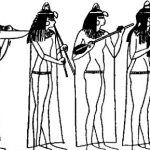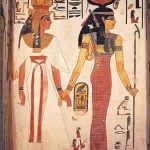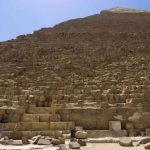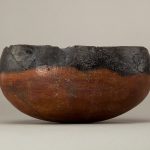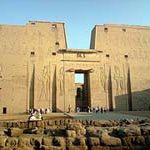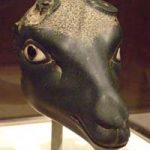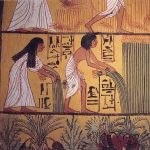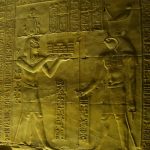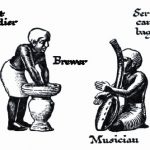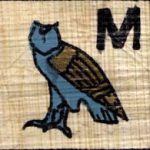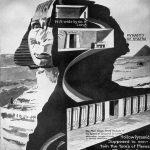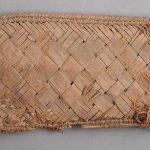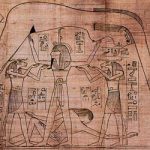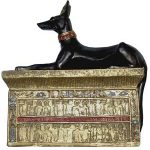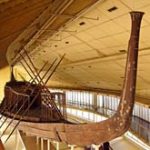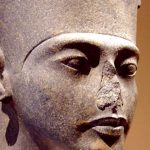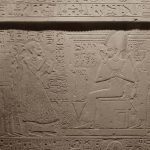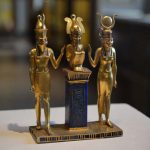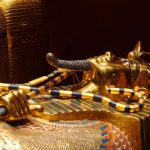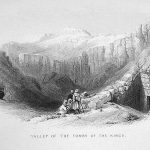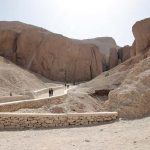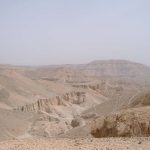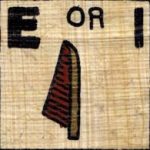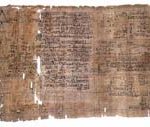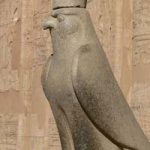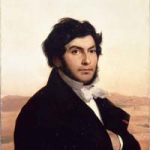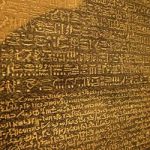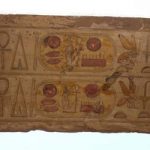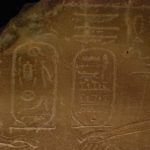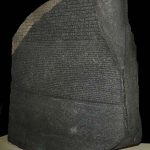Names
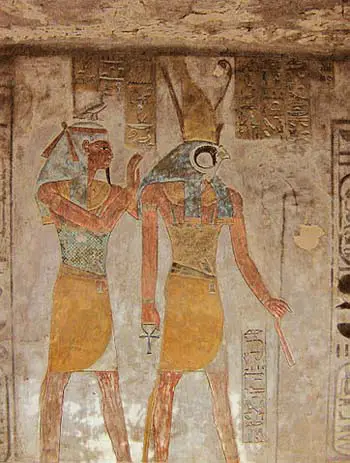 © kairoinfo4u – Geb (left) with Horus
© kairoinfo4u – Geb (left) with Horus
The myths of ancient Egypt mention several names for Geb. The name ‘Geb’ is the most common spelling of this god’s name, other spellings include:
- Qeb
- Seb
- Keb
Several different titles for Geb exist in the writings of ancient Egypt. One of these is Kenkenwer, which means “the great cackler”. This title refers to the Egyptian belief that Geb’s laughter caused earthquakes.
Two other titles came from the fact that Geb fathered the Osirian gods:
- Chief of the gods
- Father of the gods
Roles
Some of Geb’s roles in Egyptian mythology pertain to his position as the father of the Osirian gods. This position caused the Greeks to equate Geb with their god Cronus. Geb was the third divine ruler of the gods and he was also considered a tribal chieftain. The pharaohs claimed Geb was their ancestor and sources refer to their throne as “the throne of Geb”. Egypt was also called “the house of Geb”.
Another of Geb’s roles comes from his position as the god of the earth. He had an important function in the path of an Egyptian soul to the afterlife. After the burial of the dead, the Egyptians believed that Geb played a part in the souls journey. He was present at the ceremony where the gods weighed the heart of a dead person. If the judges decided the person was righteous, Geb released the soul from the earth to continue his/her journey.
Family
- Father: Shu, the god of the air
- Mother: Tefnut, the goddess of rain and moisture
- Sister/Wife: Nut, the goddess of the sky
- Son: Osiris, the god of death and resurrection
- Son: Set, the god of evil and darkness
- Son/Grandson: Horus, the god of the sun, the sky and kingship
- Daughter: Isis, the goddess of marriage and wisdom
- Daughter: Nepthys, goddess of death, darkness and decay
Legends about the origins of Horus, name him as the son of either Nut and Geb or Isis and Osiris. For this reason, Horus is Geb’s son as well as his grandson. Some myths say Ra was the father of Geb and claim Shu was his brother.
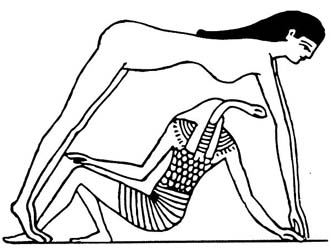 Geb (with the head as a snake) and Nut
Geb (with the head as a snake) and Nut
Worship
Egyptologists have found temples dedicated to Geb in several areas of Egypt. Heliopolis was the center of Geb’s worship though and the priests there considered Geb the father of the sun. They believed that he and Nut laid the cosmic egg that contained the sun.
Legends
At the beginning of time, the Egyptian god Shu and his consort Tefnut gave birth to twins. Geb was intertwined with Nut at his birth and they seemed to be melding together, over time. Ra ordered Shu to separate his children so he pushed Nut up into the sky and placed his feet on Geb. The separation from Nut devastated Geb, he began weeping, and his tears filled up the oceans and seas. This legend explained how the sky, earth and seas formed.
Another legend tells the story how the uraeus (the cobra depicted on the front of some Egyptian crowns) bit Geb and gave him a fever. Ra healed Geb and he abdicated his throne, after his recovery, and divided Egypt. Horus became the ruler of the north while Set ruled the south. Geb became one of the deities who rode on Ra’s sun boat.
Depictions
The main symbol associated with Geb is the goose, which comes from his title “Great Cackler”. It is also connected to the legends saying Geb laid the egg that contained the sun. In artistic depictions, Geb often has a goose on his crown or headdress. The hieroglyphic for goose is also part of his name.
Sometimes, Geb is a man who is standing or sitting with an ankh in one hand and a staff in the other. The staff has a stylized representation of Set’s head on top and two prongs on the bottom. The crown Geb wears changes depending on the image. He wears several crowns:
- The white crown of the north
- The red crown of the south
- The Atef crown or headdress. The Atef crown has a small sun disc on top with feathers flanking the disc.
Other images of Geb show him lying beneath Shu’s feet with Nut arched above him. In these images, Geb is lying flat or propped up on one arm with a leg bent. Sometimes he has green or black skin to represent the fertility of the earth. Some images include trees and rivers on Geb’s body. The position of his body representing the mountains and valleys of the earth.




